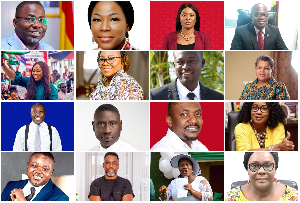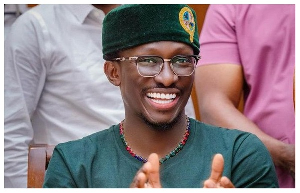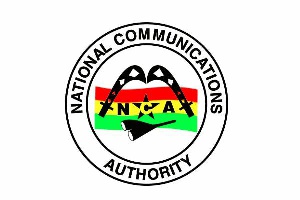In a reaction to the article cited. “ A Call to Petition for the Impeachment of John Agyekum Kufuor”, the first thing that needs to be said is that one is entitled to his or her opinion. I must also say that in response to the same information regarding losses at state owned companies, I wrote an article http://www.ghanaweb.com/GhanaHomePage/features/artikel.php?ID=37607, which was posted on Ghana web.
The problem with the article, “ A Call to Petition for the Impeachment of John Agyekum Kufuor” is the level of politics involved in everything in Ghana, which really is a disservice to any Ghanaian living. I say this with a lot of disappointment at the position taken by the minority leader, because he, better than most should know several things regarding the State enterprises and their relevance to the economy of yesterday and the economy of today. First and foremost I am not sure to what extent they were strategic to the society at any point in time, as we have ultimately seen, they were simply institutions of employment opportunities for some, and a pot for siphoning what could be referred to as state resources.
Now in terms of the relevance of these state companies, today several products and services being offered by these institutions can be secured on the free market for much cheaper. Even within the Ghanaian economy we could find effective institutions to deliver more efficient services and products than that of these institutions. This is to say that in most cases one can secure many of the goods and service on the free market and should one factor the cost of corruption, inefficiencies, and operating costs associated with these state companies, it becomes clear how much of a drain they are on state coffers, as opposed to being strategic national institutions.
To the extent that the minority leader seems to see this result of waste in these institutions as a surprise, makes it only clear that some were sleeping at the wheel prior to this government coming to power. This is a conclusion because the audit does not start with the period the NPP took over to date. It goes back further. However, who cares if this was exposed by the NPP or NDC? The point of the matter is that for the Ghanaian, we have discovered huge breakdowns, in specific terms, showing weaknesses of our state institutions, based on facts, as opposed to speculation, and this is a step in the direction.
Now the issue of accountability should come in and this is where politics rears its ugly head, but why? Is it because we see politics above the welfare of the Ghanaian society?
My expectation here would be that the results of this audit would have inspired the progressive minds of both parties to probably contemplate the following:
? Identify the breakdowns, a lot of which has to do with boards and management; because for as many times that action was taken by management without board’s approval indicates a major breakdown in that control process across the institutions.
? I would also think there would be an interest to come up with a whole new conduct of operation for these quasi –government institutions, in as much as my position is that eventually they become public companies and thrive on their own merit.
? I would have expected a debate about the strategic relevance and viability of these institutions in today’s world economy, with respect to Ghana vs. what the ambitions were when these organizations were created. To what extent are they relevant and warrant funds for operations?
? Finally, the appropriate action to be taken against those who were accountable should be discussed by both sides in a matured manner.
This sort of reaction, by way of the article cited, confirms the belief that the average politician today is not a leader and cannot gauge what situations require matured and objective responses, in terms of independent reasoning as opposed to political positions.
Ghanaians are not stupid. The politician in Ghana may be slightly different today because they at least understand that they need to be responsive, or act as such, but overall they are all the same. Too partisan to the extent that objectivity is not always put ahead of politics regarding several important issues, which leads to the shortchanging of the Ghanaian public.
Until politicians realize that the people are not interested in the politicizing of all issues, but rather are begging to be led, by clear thinking leaders, who are objective in their thinking, we as Ghanaians will always have this non-interest and skepticism in terms of government’s performance or the entire political process. This message must sink in soon and not later.
Now to deviate from my reaction to the cited article, I would like to share an article from BBC News, http://news.bbc.co.uk/2/hi/business/2968508.stm In this article, it is impressive to see what a country can do in realistic terms to boost its economy. In Ghana, this process would have been politicized so much to the extent that it would be paralyzed. Now should this happen who suffers? The Ghanaian masses who would have been again denied opportunities resulting from politics. Partisan politics is killing us and we need it to be put to rest. I also use China in that as we see the only survivor of communism is not advocating state companies but enabling citizens to reshape their economy and providing well-deserved incentives to facilitate this. I hope all politicians take cue and learn from the pragmatic steps taken by countries like China to take care of their folks, and please do not tell me about communism. The paradigm has shifted and as you can testify from reading this! article, the incentives are not in the direction of creating a more communist society.
My brothers and sisters, can we just act and think as objective, politically matured, intelligent, well minded Ghanaians and help move our economy forward, as opposed to constantly causing mayhem in the name of politics? Over zealousness will only get people in trouble. Let us use facts as the basis of our decision making process and stay objective.



















